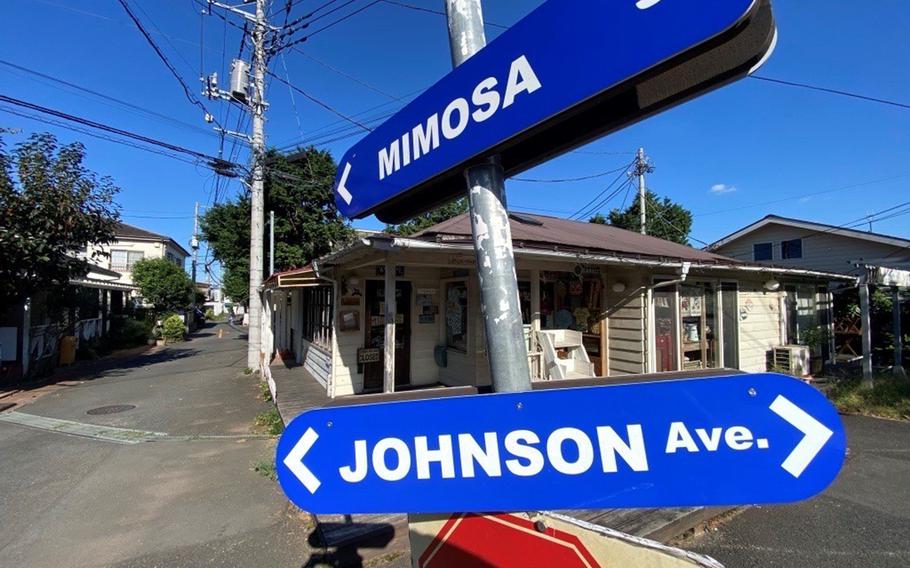
Johnson Town sprang up as post-World War II housing for American military families assigned to what was then known as Johnson Air Base north of Tokyo. (Aaron Kidd/Stars and Stripes)
A small village of 1950s American-style homes offers a taste of Western food and shopping outside a former U.S. military base just north of Tokyo.
Johnson Town sprang up as post-World War II housing for American military families assigned to what was then known as Johnson Air Base. The village’s homes fell into private hands after the Americans left Johnson — now a Japan Air Self-Defense Force base called Iruma — in the 1970s.
The most appealing part for Johnson Town’s visitors may be the rows of identical, American-style houses reminiscent of classic sitcoms like “Leave it to Beaver.” Many have been turned into businesses peddling everything from freshly roasted coffee and burgers to funky furniture and clothing.
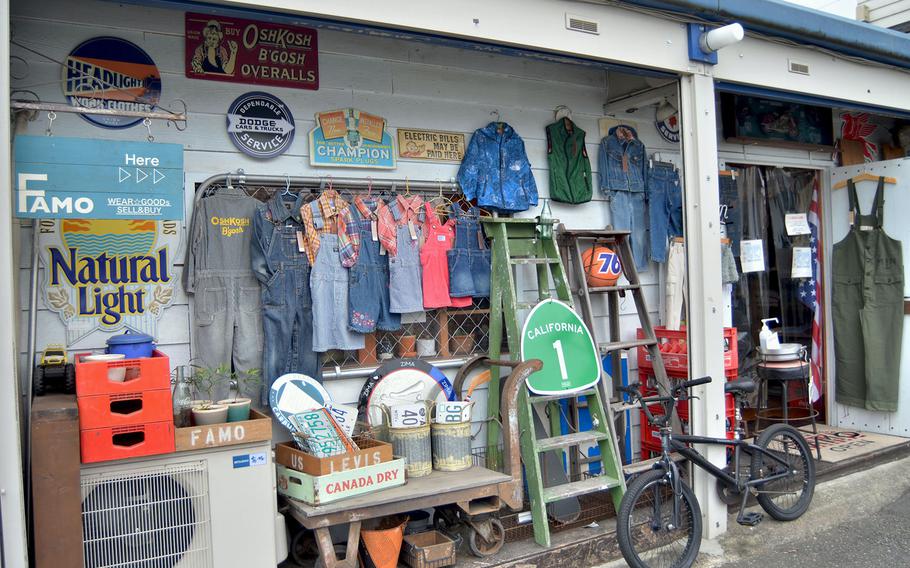
The most appealing part for Johnson Town’s visitors may be the rows of identical, American-style houses. Many have been turned into businesses peddling everything from freshly roasted coffee and burgers to funky furniture and clothing. (Erica Earl/Stars and Stripes)
Shinobu Sawamura, a dance studio owner, dance teacher and event producer, has lived in Johnson Town for more than seven years in one of the mid-century homes that she also partially converted into her studio, called Circle of Life when translated into English.
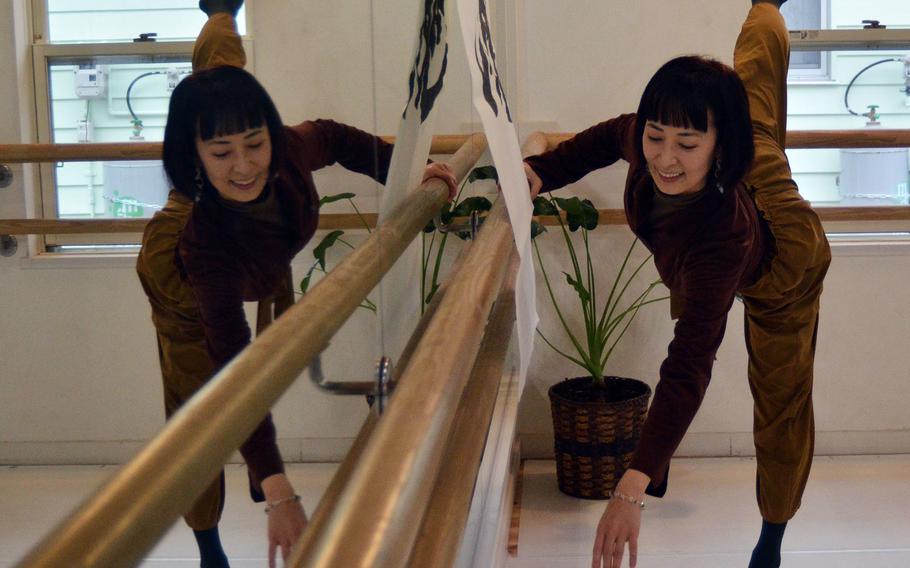
Shinobu Sawamura, a dance studio owner, teacher and event producer, has lived in Johnson Town north of Tokyo for more than seven years. She converted one of the mid-century homes, which used to house U.S. military families, into her studio. (Erica Earl/Stars and Stripes)
“We had a dream to have this studio like the movie ‘Flashdance,’” she said.
Sawamura, who worked in theater in Tokyo proper prior to moving, said she craved a life away from the busy city. As a resident of Johnson Town, Sawamura said she likes the way living in a close-knit community makes her feel.
“I can’t explain it, but my spirit and body feel healthier here,” she said. “We’re all friends. I like this land, too. So many gardens. I can feel closer to nature.”
At her studio, where she teaches ballet, jazz and theatrical dance, Sawamura said she has 70 Japanese and American students.
Being a blended community, Johnson Town’s eateries offer both Japanese and Western cuisine. For those craving the latter, Café Sainomori, Blue Corn and Maverick’s Beer Station all serve plenty of tasty options.
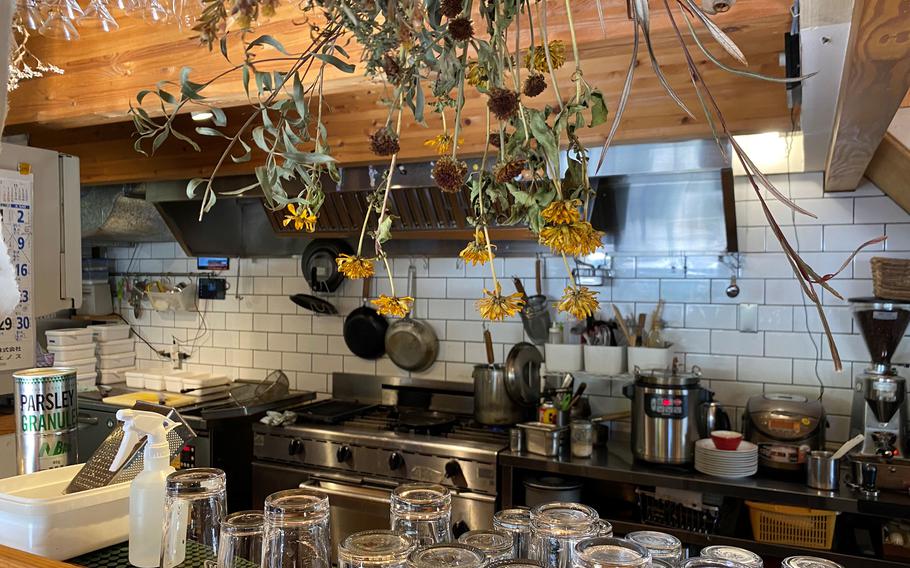
Dried flowers hang near the kitchen at the Pork Shop, one of many restaurants dotting Johnson Town, a former U.S. military housing area north of Tokyo. (Aaron Kidd/Stars and Stripes)
Café Sainomori, run for the past 12 years by Michiko Orii, offers sandwiches and burgers in an old country store-style setting. The café hosts living music, including open mic nights. Some performers come from nearby Yokota Air Base, Orii said.
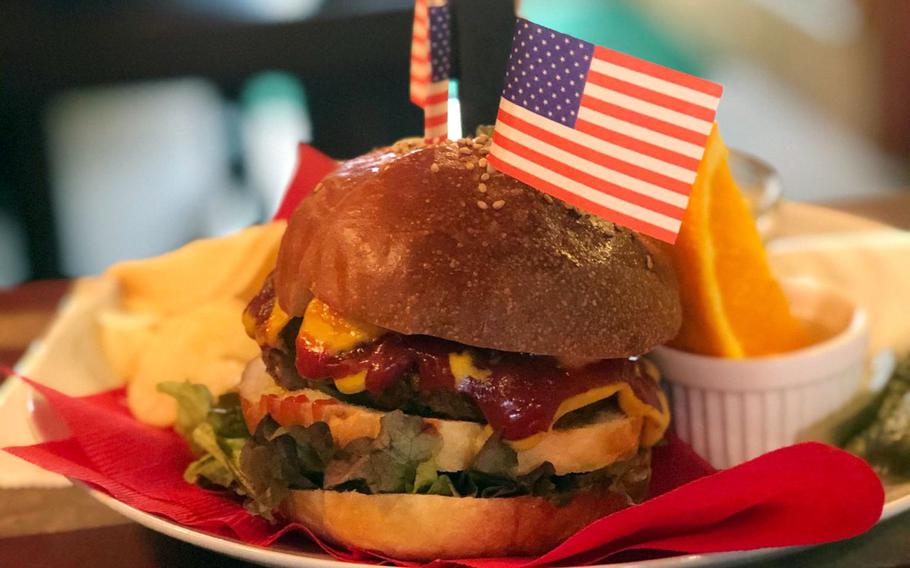
Café Sainomori offers sandwiches and burgers in an old country store-style setting in Johnson Town, north of Tokyo. (Erica Earl/Stars and Stripes)
The shop’s most popular item, the Lucy cheeseburger (1,100 yen or about $9) is a good option for anyone seeking an American-style burger with ketchup, mustard and pickles. Orii also serves a rotating menu of cheesecakes daily.
Blue Corn is another good spot for American diner food. The walls are adorned with U.S. license plates, and the restaurant is filled with American knickknacks from franchises like Star Wars and Disney.
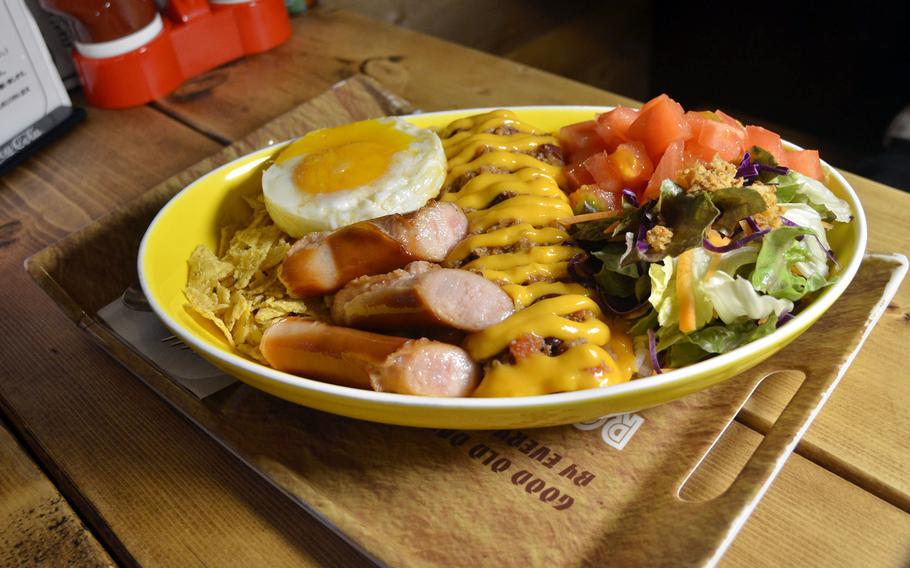
Blue Corn, part of Johnson Town north of Tokyo, offers a fun, kitschy aesthetic along with food similar to options common at American greasy spoons, like chili cheese fries and Tex-Mex bowls. (Erica Earl/Stars and Stripes)
The place offers a fun, kitschy aesthetic along with food similar to options common at American greasy spoons, like chili cheese fries and Tex-Mex bowls. Blue Corn is an ideal destination for those seeking so-called “Frankenfood” with eclectic ingredients that can be difficult to find in Japan.
The most popular menu item at Maverick’s Beer Station is its buffalo wings (880 yen for six pieces) although it also serves common Japanese izakaya food like fried chicken. It also offers German-inspired dishes like potatoes and cheese and bratwurst.
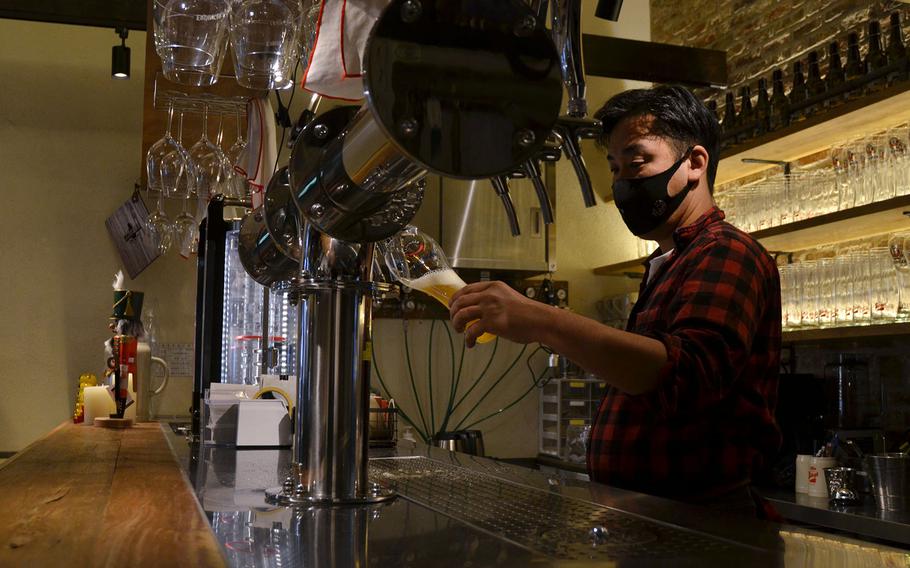
Maverick’s Beer Station, part of a village north of Tokyo called Johnson Town, is known for its German and Austrian imported beers. (Erica Earl/Stars and Stripes)
Maverick’s is known for its German and Austrian imported beers, including a massive 3-liter option that serves four to six people for 5,100 yen.
Guests to Johnson Town can also enjoy quick service-style food out of a classic Airstream trailer at Summer Cycle, although, like a small handful of the shops in the area, the café is closed on Mondays.
If you plan a trip to Johnson Town, give yourself about three to four hours to eat at one of the restaurants, shop and take pictures. There is no admission fee for Johnson Town, but you will need to pay for parking. It costs 200 yen per hour and maxes out at 800 yen for the day.
Most places in Johnson Town accept both cards and cash, although some shops are cash only.
Be advised that while photography is allowed throughout most of Johnson Town, photos are prohibited on some private residential roads.
Many of the cafes are pet-friendly, and a lot of people had their dogs with them during my recent visit.
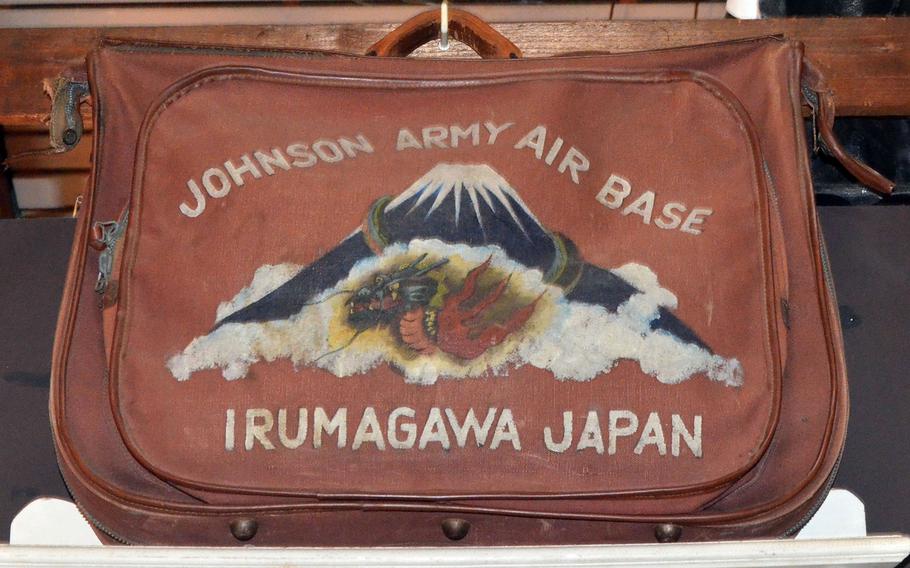
Many shops and cafes in Johnson Town north of Tokyo contain relics of when the neighborhood used to house members of the U.S. military. (Erica Earl/Stars and Stripes)
ON THE QT
Directions: About a half-hour drive from Yokota Air Base in western Tokyo. 1-6-1 Azumachō, Iruma, Saitama 358-0002
Times: Most shops are open 10 a.m. to 5 p.m. daily. Most restaurants are open 11 a.m. to 6 p.m.
Costs: Parking is 200 yen every hour, maxing out at 800 yen for the day.
Food: There are numerous cafes, food stands and sit-down restaurants.
Information: www.johnson-town.com